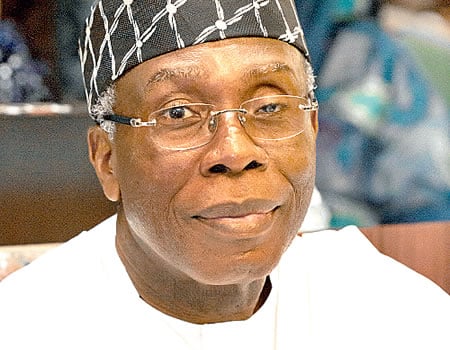THE Federal Government has begun the ‘final’ move to recapitalise the Bank of Agriculture (BOA), which is expected to reposition the Bank as almost a private sector driven financial institution, and will be able to give out loans to farmers at a very low interest rate.
The Bank of Agriculture which in the past has the largest shares from the Ministry of Agriculture and its agencies and the Central Bank of Nigeria suffered a serious setback due to non repayment of loans by farmers, this led to the liquidation of the bank.
During the inception of this present administration, efforts where made by the Federal Ministry of Agriculture and Rural Development and the Bureau of Public Enterprise to recapitalise the bank with the relocation of the bank’s headquarters to Abuja.
During a press conference on Tuesday in Abuja, the Director General, Bureau of Public Enterprise (BPE), Mr Alex Okoh explained that the new bank will have private sector and farmers acquiring about 60 per cent of the shares, while government maintains 40 per cent shares.
He said, “Currently, Bank of Agriculture is owned by the Federal Government and its agencies, this process will lead essentially to the privatisation essentially of the equity of the bank of agriculture, and the equity structure that will help, and the equity structure that we envisage (of course the financial adviser will come up with the final structure after the reform work work that they are doing), but what we envisage is that is that Central Bank of Nigeria will be reduced to 20 per cent, the Federal Ministry of Finance incorporated will be reduced to about 20 per cent, so the government agencies equity in the bank will be a minority of 40 per cent, while we invite private investors who will own 20 per cent,and the remains 40 per cent will be owned by the farmers and farmers cooperatives.
ALSO READ: FG trains laboratory technologists, technicians on quality farm inputs
“So, between private sector equity participants of the bank, we have 60 per cent, so that make it essentially a private sector bank, but the major bloc will be owned by the farmers and cooperatives.
“We are also envisaging that eventually, some of those shares will be listed on the stock exchange so that the bank can then subscribe to a strict governance rules and regulations of the privately managed institution.”
The Minister of Agriculture and Rural Development Chief Audu Ogbeh expressed optimism that the bank after recapitalisation would be a large a bank to will ensure that farmers access loans easily.
“We have a new vision for agriculture here, we want to create the farmers bank and we want all you to pass the good news to farmers, that this is their chance become co-members and owners of the bank. It has a chance o becoming a very large bank in the future, just the one in China.
“Failures in agriculture have been caused by a number of factors, sometimes the excessive interest rate and sometimes agronomic practices which are not in place or properly aligned, then of course there is the issue of management.”
Chief Ogbeh further said “the ministry of agriculture is also going to make sure that they give support to the bank, so failures are minimised, we begin with the seed, increasing our seed supply to farmers and make sure they don’t fail, we then go on to soil testing, to make sure that the right kind of soil and right kind of fertilizer applied.
“If this structure we want to put in place now starts working successfully, and we raise a capital base of anything between N200 billion to N250 billion and farmers can access credit at the lower end of the single digit (lower than 6 per cent and 5 per cent), we hope to achieve a whole lot of things.”
While harping on t need to make agriculture the mainstay of the economy, the Minister said that currently Nigeria has saved about $21 billion from food import in the last 3 and half years and exportation has also gone up to 500 per cent.
“Two banks in Nigeria announced that we have actually save $21 billion on food import in 3 and half years, and the Bureau of Statistics has affirmed that agriculture exportation has gone up to 500 per cent since we came in, and we are just beginning.
“We need value addition, we need cottage industries, we need to decongest the cities so that young people can be comfortable in their rural environments, making money and living a good life, we want to minimize the tendency of our young people crossing the desert to Europe in search of happiness which doesn’t exist anywhere,” Ogbeh said.
WATCH TOP VIDEOS FROM NIGERIAN TRIBUNE TV
- Relationship Hangout: Public vs Private Proposals – Which Truly Wins in Love?
- “No” Is a Complete Sentence: Why You Should Stop Feeling Guilty
- Relationship Hangout: Friendship Talk 2025 – How to Be a Good Friend & Big Questions on Friendship
- Police Overpower Armed Robbers in Ibadan After Fierce Struggle






